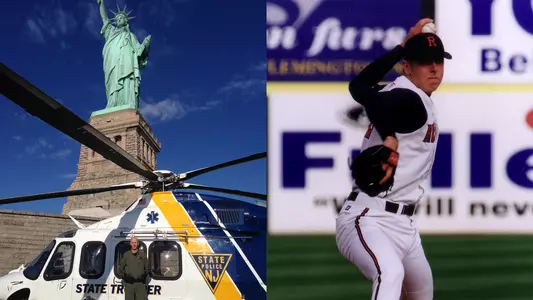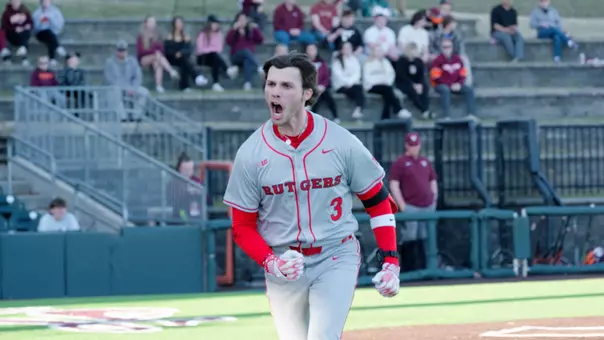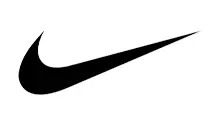
Alumni Spotlight: Ryan Molchan
Apr 16 | Baseball
Former Scarlet Knight pitcher now a member of the New Jersey State Police Aviation Bureau
PISCATAWAY, N.J. – A four-year Rutgers baseball letterwinner (1999-02), Ryan Molchan was an integral part of the bullpen for the Scarlet Knights. The left-hander pitched to a 1.93 ERA in 27 games as a senior in 2002, picking up nine saves, tied for second-most in a season in program history.
A native of East Brunswick and a First Team All-Middlesex County selection out of East Brunswick High School, Molchan was part of some of the best teams in Rutgers history. He redshirted in 1998 as the Scarlet Knights won the Big East for the first time before making his debut in 1999 in a year RU earned an at-large berth to NCAA Regionals. The 2000 squad rolled through the Big East with a 18-5 conference record, the conference tournament championship in Somerset, 40 wins altogether and the opportunity to host an NCAA Regional.
Molchan became one of the key members of the bullpen in 2001, teaming with Eric Brown to shorten games. That team established a school record with 42 victories, including a 6-5 triumph of Northern Iowa in an NCAA Regional elimination game that saw Molchan deal 4.1 scoreless innings to close it out.
Overall, he appeared in 69 career games as a relief pitcher, a role that requires the ability to work under pressure and handle adrenaline. Molchan continues to display those traits today as a member of the New Jersey State Police Aviation Bureau.
"Since 1969, the New Jersey State Police Aviation Bureau has provided aerial support to the Division of State Police as well as other agencies requiring airborne assistance in accomplishing their goals," as described on the New Jersey State Police website. "Over the years, the Bureau's mission evolved and has grown into a 24/7 operation which serves as a Law Enforcement, Homeland Security and Search & Rescue entity as well as a MedEvac response provider.
"The Aviation Bureau ensures all members receive the necessary training needed to fulfill the demands of airborne law enforcement operations. State Police pilots are proficient and meet or exceed FAA mandated requirements with regard to training, night operations, instrument currency, and flight reviews."
ScarletKnights.com recently caught up with Trooper I Molchan to discuss his role with the New Jersey State Police, Rutgers memories and more.
Why did you want to become a state police officer?
"I graduated college and I wasn't sure exactly what I wanted to do. I've always had a good sense of right and wrong, sticking up for people or trying to get in the middle and be a peacekeeper. I happened to run into a guy I used to play baseball with, and he was a state trooper. I started asking about the career and I really liked the whole idea of the locker room atmosphere. It sounded like you were part of a team or a family. Every shift you are all out there working together, trying to accomplish a goal. There's not many careers that are like that where you're not working against somebody or you're not trying to step over someone. The fact that it was a team mentality brought me in and growing up I've always had a ton of respect for state troopers. I grew up right off the turnpike in East Brunswick, and you would always see the troopers going up and down the roadway dealing with crazy stuff. I always thought that a police officer was a noble profession.
"I picked the state police because of the abundance of job opportunities you have once you get in. If you want, you can work the road, investigations, bomb unit, T.E.A.M.S., canine, aviation, marine bureau, I mean there are over 100 different things you can get into. There's a ton of options as opposed to career paths of some smaller departments. I kind of had an idea that I'd like to be able to move around to go to different stations and different parts of the state, as opposed to being in one town your whole career."
What unit are you in and what are your day-to-day responsibilities?
"I'm in the Aviation Bureau. I'm currently assigned to Aviation North, which is known throughout the state as NorthSTAR. Our primary mission is MedEvac, but we do police missions as well. Because most of our jobs are MedEvac and searches, we can't really be too proactive. It's not like you can go out and just find people to MedEvac, so we're a lot more reactive in that sense. It can be like a firehouse at times, one minute you're back at base doing paperwork and the next minute a call comes in and you are running out the door as fast as you can to start up the helicopter.
"On the days it's slower, we'll go for training flights to keep up our currencies or check some critical infrastructure and homeland security checkpoints. We like to go out and fly the coastline or head up towards the Hudson River. We're responsible for the northern half of the state and our South Unit, SouthSTAR, takes care of the southern half."
What is it like in a police helicopter?
"It's fun. I didn't know what to expect at first as I didn't start flying until after I became a trooper. A lot of people say they are scared to go up in a helicopter because of their fear of heights, it's totally different. You're in a stable platform. I can get uncomfortable if I go up a 25-foot ladder or sometimes even just walking around the top of a lighthouse, but the helicopter, it's a different feeling. Even something like working the hoist doesn't really bother me. As a hoist operator, you're basically standing out on the step of the helicopter being held in by a harness as you raise and lower people on the hoist cable. You are literally hanging out of a helicopter anywhere from 100 to 200 feet above the ground. It's definitely a little more on the interesting side and one of the things I enjoy."
What advice do you and the state police have to the public during this pandemic?
"Just stay home. I understand you're going to have to go to the store. My family, other than me, hasn't left the house. The message is to stay home and hopefully that gets us through this quicker. This is a big deal. It takes a while to realize it, but for all the agencies and everyone to be willing to go the measures they've gone as far as shutting down things and putting on restrictions, this is serious stuff. We are wearing PPE, personal protective equipment, in the helicopter and during most of our shift. The troopers on the road are wearing gloves and being very careful with their interactions. It's a shame because it's affecting people's lives. We all want it to be over with and to keep everyone safe."
How did your time at Rutgers help prepare you for your career? What did you study?
"I studied economics. At first, I started out thinking I would go the medical route as possibly a physical therapist. My first semester I took general biology and quickly realized that wasn't for me. Then I started going down the business school route and took a bunch of economics classes. Eventually I filled all the requirements for the major and settled on economics. The closer I got to graduating, the more I realized a desk job wasn't for me. I was leaning more towards teaching and coaching or something more active. Then after talking with my friend and learning a little more about the State Police, I decided on a career in law enforcement."
What are some of your best memories as a member of the baseball team?
"I was lucky enough to be on two Big East championship teams. I redshirted in 1998 when we won it for the first time. Then we won it again in 2000. I got to play with a lot of talented players. I think I played with six guys that went to the big leagues, (David) DeJesus, (Pete) Zoccolillo, (Jeff) Frazier, (Jack) Egbert, (Val) Majewski and (Jason) Bergmann. Val was a third-round pick. I believe Billy McCarthy was taken in the sixth. Then you have Bobby Brownlie, a first-round pick. So there were a lot of talented players.
"It was great. I mean, that was the whole reason I came to Rutgers. I wanted to be part of something big. I wasn't sure when I came to Rutgers that I would even see the field. I was kind of like an add on, a recruited walk-on, told if I could develop, I could play. I was very fortunate, but it was awesome to be around all these talented players and see how they work. It taught me a lot. I mean, honestly, to be around the players and the coaches we had was great. All the guys worked hard and all the guys were great guys. Everyone took care of each other. The senior guys on the team did a great job of leading by example. It was a great program to be around and I'm very thankful to be part of it."
What was it like playing for coach Hill?
"Coach Hill was awesome. He's a legend. People respect him because of who he was, not just because he was the coach. He was born to coach. He had that about him. He knew when to turn it on, he knew when to back it off, had a sense of humor. We used to love to play basketball in winter workouts while we're waiting to go to the weight room. Coach came out, he was like 'I'm in' and just put himself in the game, and he guarded me. I'm 6-4 and I don't know what he was, 5-8? And the first thing I did was post him up and as soon as I got the ball, he hacked me and said 'take it out back up top.' He wouldn't let me shoot. He just didn't care who you were, he wasn't backing down.
"There was another time when it was the winter and everyone was home on break and I was just throwing a ball against the wall. Coach came out and said 'I'll catch you.' And I'm like, 'I'm good, Moose.' And he says 'I got you.' He gets down with no mask, no shin guards and there I am, I might have been a redshirt sophomore at the time. I didn't throw very hard so I wasn't going to hurt him, but I'm just terrified. He's telling me to throw curveballs and changeups. I'm just worried about bouncing one and taking him out."
Is there a recruiting story on how you ended up at Rutgers?
"I had a pretty good year as a junior, but wasn't receiving a lot of Division I interest. During the winter of my senior year, I went to a Rutgers winter camp and kind of got on the radar a little bit from there. We had a couple good players on my high school team and a bunch of talented guys in the county, so Beef had been to a few of my games. I think they had recruited four or five guys from Middlesex around that time, guys like Michael O'Brien, Dave Marciniak, Jeff Marciniak and Mike Popowski. There were a lot of local guys going to Rutgers. Once they started recruiting me, they were my top choice. Everyone's dream in baseball is to play professional baseball, and I was like, if I can't play at Rutgers, then I can't play pro ball. I wanted to play on the best team I could and see if I could cut it."
What was your role on the team?
"My junior year I was the setup guy. We had a closer in Eric Brown. And then my senior year, I ended up closing. I don't think that was the plan, but it kind of just fell in my lap. The first series of the year I came in after a guy gave up couple hits and finished out the game, then it happened again. By the third series, they just went right to me and that was it for the rest of the year."
Does being a relief pitcher in a jam have any similarity to the feeling of being a police officer?
"Absolutely. Honestly, I think it's a huge advantage. I remember the first time I made an appearance for Rutgers and I was shaking so much on the mound. I thought they were going to call a balk. There was just so much adrenaline, it was a bigger stage. Same thing with the state police, the first time you chase a car down for speeding or you get someone out of the car for a search, you get this adrenaline and have to know how to handle it. Being able to concentrate under pressure, it's huge. It allows you to kind of slow things down. I think it's a huge advantage to be an athlete and take it over to law enforcement."
What advice do you have to someone who might be considering a career as a police officer?
"I would say for sure that it's a great career. It has its downsides too, you're going to miss birthday parties, you're going to miss holiday parties and a lot of other things, but you're going to gain a lot of good experience and work with a lot of good people. I love it. If you asked me, I haven't worked a day in my life. I enjoy going to work. I enjoy the people I'm around. Just figure out what works for you. There's a lot of different careers in law enforcement, whether it's a local municipality, a federal job or the state police. Figure out what you like."
Final thoughts?
"I'm very proud to be part of the Rutgers family and that I was able to play for coach Hill. I also want to make sure that coach Gardner gets his recognition as well. Beef was a guy that no matter when you went to the RAC or the weight room, he was there. He was there for everybody, all the time and was one of the most supportive coaches I've ever been around. I think we literally got him to yell one time in the five years I was there. He was phenomenal and I look back very fondly at my time there with him. I also take a lot of pride in being a State Trooper. Last month my family and I were on a hike and my daughters were wearing state police sweatshirts when a gentleman stopped us and asked 'are you a trooper?' I responded yes and he said 'thank you for what you do.' So it's nice to be appreciated."
Follow Rutgers Athletics on Facebook and Twitter (@RUAthletics) for all of the latest news and updates. For specific updates regarding baseball, follow the program on Twitter (@RutgersBaseball), Instagram (@rutgersbaseball) and Facebook (/BaseballRU). For additional updates, please download the Scarlet Knights App via the app store or play store.
A native of East Brunswick and a First Team All-Middlesex County selection out of East Brunswick High School, Molchan was part of some of the best teams in Rutgers history. He redshirted in 1998 as the Scarlet Knights won the Big East for the first time before making his debut in 1999 in a year RU earned an at-large berth to NCAA Regionals. The 2000 squad rolled through the Big East with a 18-5 conference record, the conference tournament championship in Somerset, 40 wins altogether and the opportunity to host an NCAA Regional.
Molchan became one of the key members of the bullpen in 2001, teaming with Eric Brown to shorten games. That team established a school record with 42 victories, including a 6-5 triumph of Northern Iowa in an NCAA Regional elimination game that saw Molchan deal 4.1 scoreless innings to close it out.
Overall, he appeared in 69 career games as a relief pitcher, a role that requires the ability to work under pressure and handle adrenaline. Molchan continues to display those traits today as a member of the New Jersey State Police Aviation Bureau.
"Since 1969, the New Jersey State Police Aviation Bureau has provided aerial support to the Division of State Police as well as other agencies requiring airborne assistance in accomplishing their goals," as described on the New Jersey State Police website. "Over the years, the Bureau's mission evolved and has grown into a 24/7 operation which serves as a Law Enforcement, Homeland Security and Search & Rescue entity as well as a MedEvac response provider.
"The Aviation Bureau ensures all members receive the necessary training needed to fulfill the demands of airborne law enforcement operations. State Police pilots are proficient and meet or exceed FAA mandated requirements with regard to training, night operations, instrument currency, and flight reviews."
ScarletKnights.com recently caught up with Trooper I Molchan to discuss his role with the New Jersey State Police, Rutgers memories and more.
Why did you want to become a state police officer?
"I graduated college and I wasn't sure exactly what I wanted to do. I've always had a good sense of right and wrong, sticking up for people or trying to get in the middle and be a peacekeeper. I happened to run into a guy I used to play baseball with, and he was a state trooper. I started asking about the career and I really liked the whole idea of the locker room atmosphere. It sounded like you were part of a team or a family. Every shift you are all out there working together, trying to accomplish a goal. There's not many careers that are like that where you're not working against somebody or you're not trying to step over someone. The fact that it was a team mentality brought me in and growing up I've always had a ton of respect for state troopers. I grew up right off the turnpike in East Brunswick, and you would always see the troopers going up and down the roadway dealing with crazy stuff. I always thought that a police officer was a noble profession.
"I picked the state police because of the abundance of job opportunities you have once you get in. If you want, you can work the road, investigations, bomb unit, T.E.A.M.S., canine, aviation, marine bureau, I mean there are over 100 different things you can get into. There's a ton of options as opposed to career paths of some smaller departments. I kind of had an idea that I'd like to be able to move around to go to different stations and different parts of the state, as opposed to being in one town your whole career."
What unit are you in and what are your day-to-day responsibilities?
"I'm in the Aviation Bureau. I'm currently assigned to Aviation North, which is known throughout the state as NorthSTAR. Our primary mission is MedEvac, but we do police missions as well. Because most of our jobs are MedEvac and searches, we can't really be too proactive. It's not like you can go out and just find people to MedEvac, so we're a lot more reactive in that sense. It can be like a firehouse at times, one minute you're back at base doing paperwork and the next minute a call comes in and you are running out the door as fast as you can to start up the helicopter.
"On the days it's slower, we'll go for training flights to keep up our currencies or check some critical infrastructure and homeland security checkpoints. We like to go out and fly the coastline or head up towards the Hudson River. We're responsible for the northern half of the state and our South Unit, SouthSTAR, takes care of the southern half."
What is it like in a police helicopter?
"It's fun. I didn't know what to expect at first as I didn't start flying until after I became a trooper. A lot of people say they are scared to go up in a helicopter because of their fear of heights, it's totally different. You're in a stable platform. I can get uncomfortable if I go up a 25-foot ladder or sometimes even just walking around the top of a lighthouse, but the helicopter, it's a different feeling. Even something like working the hoist doesn't really bother me. As a hoist operator, you're basically standing out on the step of the helicopter being held in by a harness as you raise and lower people on the hoist cable. You are literally hanging out of a helicopter anywhere from 100 to 200 feet above the ground. It's definitely a little more on the interesting side and one of the things I enjoy."
What advice do you and the state police have to the public during this pandemic?
"Just stay home. I understand you're going to have to go to the store. My family, other than me, hasn't left the house. The message is to stay home and hopefully that gets us through this quicker. This is a big deal. It takes a while to realize it, but for all the agencies and everyone to be willing to go the measures they've gone as far as shutting down things and putting on restrictions, this is serious stuff. We are wearing PPE, personal protective equipment, in the helicopter and during most of our shift. The troopers on the road are wearing gloves and being very careful with their interactions. It's a shame because it's affecting people's lives. We all want it to be over with and to keep everyone safe."
How did your time at Rutgers help prepare you for your career? What did you study?
"I studied economics. At first, I started out thinking I would go the medical route as possibly a physical therapist. My first semester I took general biology and quickly realized that wasn't for me. Then I started going down the business school route and took a bunch of economics classes. Eventually I filled all the requirements for the major and settled on economics. The closer I got to graduating, the more I realized a desk job wasn't for me. I was leaning more towards teaching and coaching or something more active. Then after talking with my friend and learning a little more about the State Police, I decided on a career in law enforcement."
What are some of your best memories as a member of the baseball team?
"I was lucky enough to be on two Big East championship teams. I redshirted in 1998 when we won it for the first time. Then we won it again in 2000. I got to play with a lot of talented players. I think I played with six guys that went to the big leagues, (David) DeJesus, (Pete) Zoccolillo, (Jeff) Frazier, (Jack) Egbert, (Val) Majewski and (Jason) Bergmann. Val was a third-round pick. I believe Billy McCarthy was taken in the sixth. Then you have Bobby Brownlie, a first-round pick. So there were a lot of talented players.
"It was great. I mean, that was the whole reason I came to Rutgers. I wanted to be part of something big. I wasn't sure when I came to Rutgers that I would even see the field. I was kind of like an add on, a recruited walk-on, told if I could develop, I could play. I was very fortunate, but it was awesome to be around all these talented players and see how they work. It taught me a lot. I mean, honestly, to be around the players and the coaches we had was great. All the guys worked hard and all the guys were great guys. Everyone took care of each other. The senior guys on the team did a great job of leading by example. It was a great program to be around and I'm very thankful to be part of it."
What was it like playing for coach Hill?
"Coach Hill was awesome. He's a legend. People respect him because of who he was, not just because he was the coach. He was born to coach. He had that about him. He knew when to turn it on, he knew when to back it off, had a sense of humor. We used to love to play basketball in winter workouts while we're waiting to go to the weight room. Coach came out, he was like 'I'm in' and just put himself in the game, and he guarded me. I'm 6-4 and I don't know what he was, 5-8? And the first thing I did was post him up and as soon as I got the ball, he hacked me and said 'take it out back up top.' He wouldn't let me shoot. He just didn't care who you were, he wasn't backing down.
"There was another time when it was the winter and everyone was home on break and I was just throwing a ball against the wall. Coach came out and said 'I'll catch you.' And I'm like, 'I'm good, Moose.' And he says 'I got you.' He gets down with no mask, no shin guards and there I am, I might have been a redshirt sophomore at the time. I didn't throw very hard so I wasn't going to hurt him, but I'm just terrified. He's telling me to throw curveballs and changeups. I'm just worried about bouncing one and taking him out."
Is there a recruiting story on how you ended up at Rutgers?
"I had a pretty good year as a junior, but wasn't receiving a lot of Division I interest. During the winter of my senior year, I went to a Rutgers winter camp and kind of got on the radar a little bit from there. We had a couple good players on my high school team and a bunch of talented guys in the county, so Beef had been to a few of my games. I think they had recruited four or five guys from Middlesex around that time, guys like Michael O'Brien, Dave Marciniak, Jeff Marciniak and Mike Popowski. There were a lot of local guys going to Rutgers. Once they started recruiting me, they were my top choice. Everyone's dream in baseball is to play professional baseball, and I was like, if I can't play at Rutgers, then I can't play pro ball. I wanted to play on the best team I could and see if I could cut it."
What was your role on the team?
"My junior year I was the setup guy. We had a closer in Eric Brown. And then my senior year, I ended up closing. I don't think that was the plan, but it kind of just fell in my lap. The first series of the year I came in after a guy gave up couple hits and finished out the game, then it happened again. By the third series, they just went right to me and that was it for the rest of the year."
Does being a relief pitcher in a jam have any similarity to the feeling of being a police officer?
"Absolutely. Honestly, I think it's a huge advantage. I remember the first time I made an appearance for Rutgers and I was shaking so much on the mound. I thought they were going to call a balk. There was just so much adrenaline, it was a bigger stage. Same thing with the state police, the first time you chase a car down for speeding or you get someone out of the car for a search, you get this adrenaline and have to know how to handle it. Being able to concentrate under pressure, it's huge. It allows you to kind of slow things down. I think it's a huge advantage to be an athlete and take it over to law enforcement."
What advice do you have to someone who might be considering a career as a police officer?
"I would say for sure that it's a great career. It has its downsides too, you're going to miss birthday parties, you're going to miss holiday parties and a lot of other things, but you're going to gain a lot of good experience and work with a lot of good people. I love it. If you asked me, I haven't worked a day in my life. I enjoy going to work. I enjoy the people I'm around. Just figure out what works for you. There's a lot of different careers in law enforcement, whether it's a local municipality, a federal job or the state police. Figure out what you like."
Final thoughts?
"I'm very proud to be part of the Rutgers family and that I was able to play for coach Hill. I also want to make sure that coach Gardner gets his recognition as well. Beef was a guy that no matter when you went to the RAC or the weight room, he was there. He was there for everybody, all the time and was one of the most supportive coaches I've ever been around. I think we literally got him to yell one time in the five years I was there. He was phenomenal and I look back very fondly at my time there with him. I also take a lot of pride in being a State Trooper. Last month my family and I were on a hike and my daughters were wearing state police sweatshirts when a gentleman stopped us and asked 'are you a trooper?' I responded yes and he said 'thank you for what you do.' So it's nice to be appreciated."
Follow Rutgers Athletics on Facebook and Twitter (@RUAthletics) for all of the latest news and updates. For specific updates regarding baseball, follow the program on Twitter (@RutgersBaseball), Instagram (@rutgersbaseball) and Facebook (/BaseballRU). For additional updates, please download the Scarlet Knights App via the app store or play store.
Rutgers Baseball at Charleston Highlights | 2/15/2026
Sunday, February 15
Al Leiter at 2026 First Pitch Dinner for Rutgers Baseball
Tuesday, February 03
Rutgers Athletics Launches the Athletic Excellence Fund
Monday, October 06
2025 Rutgers Baseball Golf Outing
Friday, August 08














